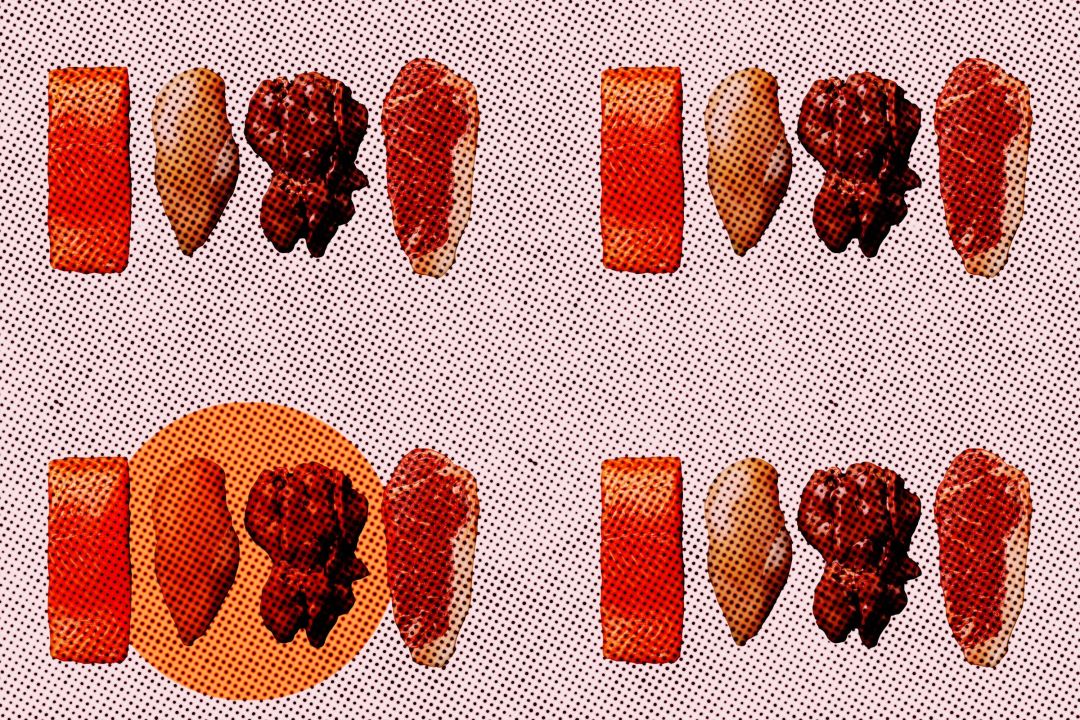What is the Carnivore Diet? And Is it Good for You?

Image: Kari Perrin
No, this is not a diet for wild animals or even people trying to survive in the wilderness on some trendy reality TV show. The carnivore diet, a diet in which people greatly reduce intake of carbohydrates and mostly stick to eating meat, is actually followed by ordinary people looking to up their protein intake and receive certain benefits from reducing carbohydrates of any kind, even fruits and vegetables.
But is the carnivore diet sustainable? Most importantly, is it healthy? Personal trainer and P-Fit Sarasota manager Courtney Willoughby weighs in.
When did it begin?
The carnivore diet was developed by former American orthopedic doctor Shawn Baker. In 2019, Baker wrote a book titled The Carnivore Diet, where he touted the benefits of eating a meat-focused diet. He discusses some of the theories behind why humans were meant to eat meat, and comprehensive strategies to implementing the diet into a lifestyle. He also debunks misconceptions about carnivorism.
What are the reported benefits?
"This diet could help you feel fuller due to high protein intake, and help with possible blood sugar stabilization," says Willoughby. Other practitioners claim it can aid weight loss and stabilize mood.
Weight loss studies have also shown a connection between losing weight and maintaining high levels of protein and low carbohydrates. Willoughby recommends eating 0.8 to 1.2 grams of protein per pound of body weight, striving to eat lean protein at every meal.
The Carnivore Diet books carries the belief that human ancestral populations ate mostly meat and fish and that high-carb diets are to blame for today's high rates of chronic disease. Despite claims of it treating depression, anxiety, arthritis, obesity and diabetes, there has been no significant research to analyze or confirm these effects.
What are the risks?
When you follow a carnivore diet, you are restricting several other food groups thought to be crucial to a well-balanced diet. The diet can also be high in saturated fat and cholesterol, which may increase your LDL, or "bad" cholesterol levels.
Eating a carnivore diet may also increase sodium intake because some processed meat products, like bacon, contain sodium to preserve freshness and flavor. High sodium intake has been linked to high blood pressure and kidney disease.
"Lack of fiber can cause digestive issues like constipation," says Willoughby. "There is also a lack of micronutrients from fruits and vegetables that can cause fatigue."
Maintaining a carnivore diet can also be expensive, as meat typically costs more than produce.
What are foods you can eat?
When on the carnivore diet, you can eat meat, fish, animal products such as eggs, lard, bone marrow and bone broth, and dairy like heavy cream, hard cheese and butter. Dairy products must be low-lactose because they tend to be lower in sugar and carbohydrates.
These guidelines are on a sliding scale, however. Some people choose to incorporate things like yogurt, milk and other cheeses because they're still considered animal products.
Fats gained from carnivore diet can be found in other foods, aiding mental health.
Some people have claimed that the carnivore diet greatly improved their mental health because fats have been linked to better brain function. But it's the type of fat that is more important. Eating enough Omega 3-fatty acids found in nuts, seeds, avocado and fatty fish like salmon or sardines can be most beneficial.
There is a marked difference between saturated fats and fatty acids that impact the bodies in different ways. If you need more guidance on the type of fat that is most beneficial, consider seeking advice from a nutritionist.
Busting the low-carb myth: You can eat carbs and lose weight.
While many people believe that cutting out carbohydrates completely is the best way to lose weight, it is not always the most sustainable. If you want lasting energy throughout the day, improved heart health and function and want to keep the weight off, incorporating healthy complex carbohydrates, like whole grain bread, pasta and other grains like oats, is important.
Who would most likely do the carnivore diet?
"The carnivore diet is not practical for someone working out consistently or professional athletes," says Willoughby. "The pure lack of other nutrients like carbs, fiber and vitamins will not allow them to perform properly or at an elite level."
For the average person trying to lose weight or help mental health issues, the carnivore diet may worth a try under the supervision of a licensed dietician or doctor.



